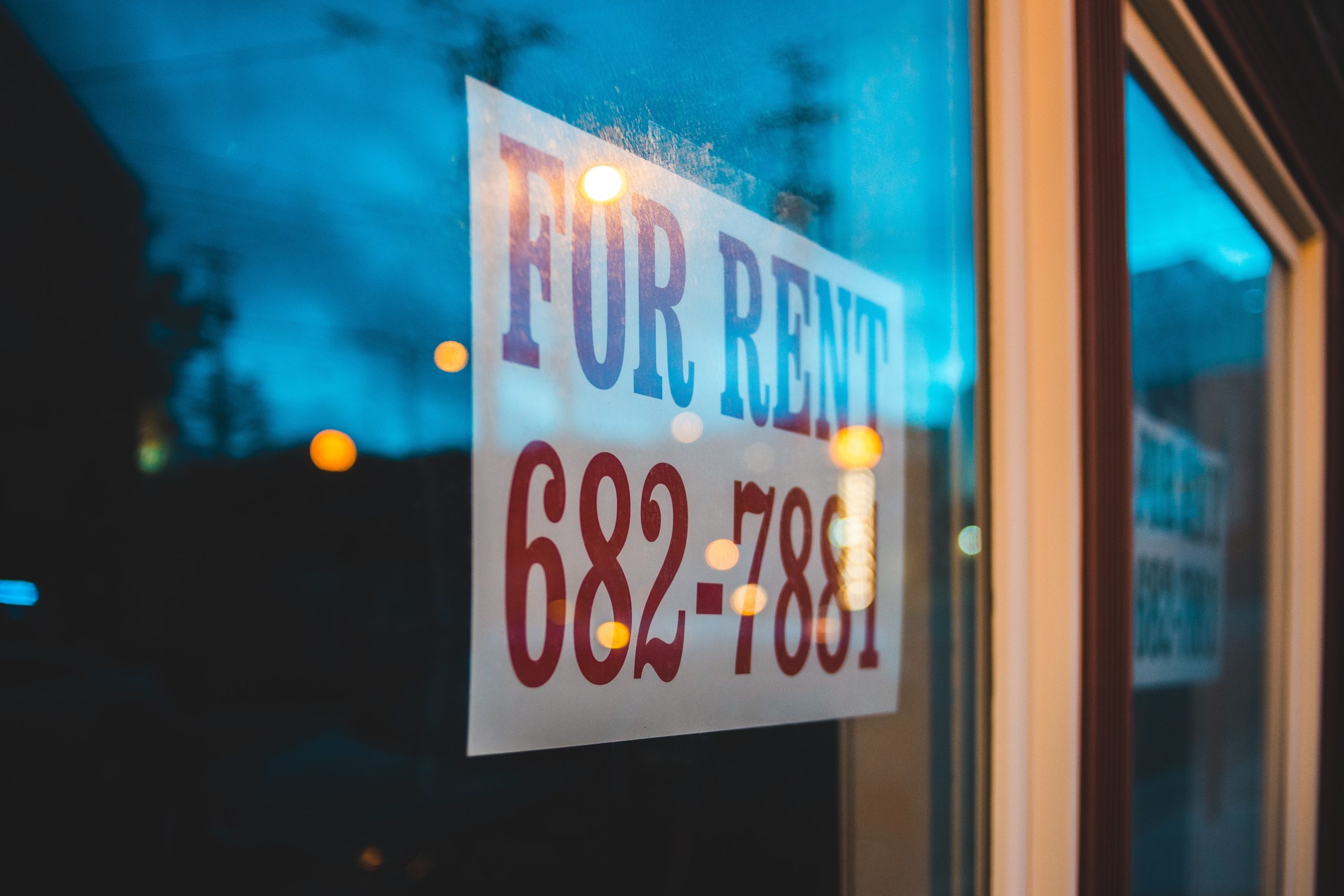Owning rental property can have numerous tax benefits and be overall financially rewarding. Without careful planning, however, your tax bill might shock you when you choose to sell your property. For this reason, selling a rental property while minimizing your tax hit becomes a high priority for many real estate investors.
When you sell a rental property, the two taxes you should be concerned with are capital gains tax and depreciation recapture tax.
There are a number of ways you can defer, reduce, or entirely avoid your tax burden when you sell a rental property. You can also utilize tactics like installment sales in order to distribute your taxes over a longer period of time.
Let’s check out what you need to know about minimizing your tax hit at the time of sale. After all, wouldn’t you rather re-invest your profits in other property or investments instead of writing a giant check to Uncle Sam?
Before we jump into how to minimize your tax hit when you’re selling a rental property, let’s take a quick look at why it might be time for you to sell.

Let’s be real for a minute. When you research owning rental properties online, a lot of time all you hear is the positive side of things. Investors fill up forums talking about the tax advantages of owning rentals, the passive income source, and the overall feeling of “winning” in one’s financial life.
That being said, a lot of people brush over the reality of what it means to be a landlord. Sure, being a landlord can range widely in terms of how involved you are. If you are renting out an apartment on your primary residence’s property and dealing with all of the management aspects yourself, being a landlord is going to be a much bigger part of your everyday life. On the other hand, if you hire out property management and take a hands-off approach to the whole thing, being a landlord is something that can exist more in the background of your focus.
Either way, though, being a landlord is a serious responsibility that shouldn’t be overlooked. The cost of upkeep for the property, the potential nightmare of bad tenants, the risk of vacancy, and much more are enough to leave you lying awake at night.
If being a landlord has left you totally overextended because you’re dealing with all of the management aspects on your own, there’s no shame in selling and moving on. Similarly, if you’re having consistent tenant problems, you live in a state where the landlord-tenant laws are dangerously tenant favored, or you simply don’t want to deal with the hassle anymore, it might be time to get your cash out and head in a different direction.
Maybe you’ve decided to sell your rental property because you stand to gain a healthy profit. While monthly rental income can be awesome, there’s nothing wrong with selling when the time (and the price) is right.
While owning a rental property can be awesome from a financial standpoint in some instances, in others the cost of operating the property can be more than it’s worth dealing with. Maybe your insurance, taxes, and utility costs have risen, or maybe the average rent in your area has decreased. Sometimes, both can happen at the same time.
If the numbers simply aren’t adding up anymore, you might decide to get out while you can.
If maintenance costs have gone up or your rental is in need of serious repair, you might choose to sell the property and let someone else incur those costs. While the need for major repairs will likely reduce how much you profit when you sell the place, you might decide that this is the best route for you to take.
Not everything is about money. There are a million reasons that you might want to sell your property that don’t have anything to do with cash flow, landlord-tenant law, or potential profit at the time of sale.
Maybe you just had a baby, got married, or are moving out of state. Maybe you’ve been dealing with a life transition that involves a health problem, a death in the family, or a divorce. Regardless of the reason, there are some life circumstances that might call you to shift your focus towards other things.

Streets, neighborhoods, and cities exist in a state of constant flux. It’s possible that your rental property seemed like a promising investment when you first purchased it, but now it seems like the winds have changed. Maybe you inherited a property that has been serving you well as a rental for a period of time, but you can smell that the area is starting to head south.
Maybe you have figured out a more lucrative passive income source and you want to put your resources towards that project, or perhaps you want to increase the diversity of your portfolio. At the end of the day, when your money is tied up in real estate, you can’t invest it elsewhere. While you obviously could choose to take out a loan with your property as collateral, you might still choose that selling is the best option on the table.
Are you wondering what your ROI is for your investment property? Check out this guide to learn how to calculate ROI for a rental property.
There are two different ways that the IRS will tax the profit that you make selling a rental property. These are capital gains tax and depreciation recapture tax.
In order to calculate your gain, you will need to take the adjusted basis of your property at the time of the sale and subtract it from the property’s sales price. This price includes the expenses associated with selling the property such as realtor commissions and legal fees.
The adjusted basis of your property refers to the cost of the asset after incorporating any changes to its original value. There are a number of different factors that can change the basis of your property. For example, improvements and additions can increase the basis, while tax deductions can decrease your basis.
You will then have to determine the total amount of tax owed by separating your capital gain from your gain due to depreciation recapture.
If you are interested in adjusting the basis of your rental property, there are a number of different tactics you can take.
Your taxable capital gains decrease when you increase the basis of your rental property. In general, anything that adds value to your property that isn’t a part of routine maintenance or repair can increase the basis or your rental.
On the other hand, the amount of capital gains tax you owe can potentially increase when you decrease the basis of your property. Things that can decrease the basis of your rental include receiving an insurance payment as a reimbursement for a casualty loss or theft or subtracting depreciation from your net rental income.
A capital gain occurs when a capital asset increases in value when it is sold. Basically, you are experiencing a capital gain when you sell something for a higher price than you purchased it.
When you sell an asset at a profit, Uncle Sam would like to take his share. That’s where capital gains tax comes in.
Capital gains are divided into short and long-term capital gains in the eyes of the IRS. Short-term gains apply to assets that you have owned for one year or less. Short-term capital gains are taxed based on the individual’s adjusted gross income and tax filing status as ordinary income.
On the other hand, long-term capital gains aren’t taxed at the same rate as regular income. There are different tax rates for long-term capital gains, but a majority of individuals will be taxed 15% on long-term capital gains. For this tax rate, their income needs to fall below:
If you earn $40,000 or less (or less than $80,000 as a married couple filing together,) your tax rate for long-term capital gains is 0%. However, if your income is higher the limits listed above, it means you fall into a higher tax bracket where your capital gains are taxed at 20%.
When you sell a rental property, the other tax you’ll want to familiarize yourself with is depreciation recapture tax. When the sale price of your property exceeds the adjusted cost basis or tax basis, depreciation recapture is assessed.
One of the biggest advantages of owning rental property from a tax standpoint is the ability to deduct depreciation from your taxable income. However, when you sell the property, the IRS will want to collect taxes on the profits from an asset that had previously been used to reduce taxable income.
In general, depreciation recapture is capped at a maximum rate of 25%. If you haven’t been claiming the depreciation deduction on your taxes, you might think that you’ll get off scot free here. Unfortunately, that’s not the case.
The tax code is written to explain that depreciation must be recaptured if the depreciation deduction was allowed or allowable. This means that you’ll have to pay taxes on the gain due to depreciation when you choose to sell your property even if you didn’t claim the depreciation expense that you were legally allowed to.
If you’re interested in deferring depreciation recapture taxes, you might consider utilizing the 1031 exchange discussed below. When you sell a rental property as a part of a like-kind exchange, you can defer both depreciation recapture taxes and capital gains. The taxes will ultimately be deferred until a later date when you sell a property without purchasing another like-kind property.
To learn more about what happens to depreciation when you sell a rental property, check out this guide.
Owning rental properties can offer some major benefits. Not only do you receive monthly rental income from your properties, but you’re building equity in the assets at the same time. On top of that, if your properties appreciate over time, the combo means that there is potential to turn a significant profit when you choose to sell.
Unfortunately, Uncle Sam can smell all that money you’re about to make and he’d like to take his cut. When you sell your rental properties, it can trigger significant long-term capital gains tax liabilities, not to mention depreciation recapture tax.
One way that rental property investors reduce their tax exposure is through tax-loss harvesting. This is done by pairing the gains from one property’s sale with another investment’s loss. If you have an unrealized loss in an investment, you might choose to sell the asset at a loss during the same year that you sell your property in order to offset your gains.
Tax-loss harvesting has been commonly used in order to help offset stock investment gains. Recently, though, people have increasingly been applying it to the sale of their rental properties as well.
Basically, if you sold a rental property and made $25,000 but you also have an unrealized loss of $50,000 in the stock market, you can realize a portion of your losses in order to offset your capital gains. In this instance, you might choose to sell some of your stocks in order to realize a $25,000 loss in order to offset the profit that would otherwise be subject to capital gains tax.
When you’re selling a rental property, paying capital gains tax can be a real bummer. However, there is a way that you can defer some or even all of your capital gains tax.
You can do this by taking advantage of Section 1031 of the tax code. This section allows real estate investors to defer paying capital gains taxes by purchasing a like-kind property. The term like-kind has a pretty broad definition, meaning that you usually swap income-generating rental units for one another without needing to precisely match the details.
If you want to defer your capital gains tax by purchasing a new property, time is of the essence. You only have 45 days from the sale of the property to find properties that could serve as potential replacements. In order to take advantage of the 1031 exchange, you’ll need to formally close on the new property within 180 days.
If you have a tax return due before the end of that period, you will actually have to close on the property even sooner. If you don’t make the deadline, you’ll be faced with the full capital gains tax amount for the original rental property.

Another workaround when it comes to capital gains tax is by using your rental property as a primary residence for a period of time. If you are willing to live in your rental for at least two out of the last five years, you can exclude as much as $500,000 in capital gains from your taxable income.
That $500,000 figure is how much you’re allowed to exclude from the profits from the sale if you’re married filing jointly. For single people, you can exclude up to $250,000.
In order to qualify for the primary residence exclusion, you will need to have used the property as your primary residence for at least two out of the previous five years. The five-year period referred to here is the one immediately preceding the sale of the property. However, the two-year period of time that you lived there doesn’t have to be consecutive.
How long the property was used as a primary residence versus how long it was used as a rental will inform the deduction amount. You also won’t be able to exclude the part of the gain that had been attributed to a depreciation deduction previously. This is the depreciation recapture we discussed earlier, where the amount of the previously claimed depreciation deduction is taxed at a max rate of 25%.
Do you own your rental property without any mortgage attached? First of all, congrats! Secondly, you might be able to avoid a huge, one-time tax bill when you sell your rental property by using an installment sale.
This is a strategy where you will still pay taxes, however. Your tax payments, though, are spread out over a much longer period of time rather than being due in one lump sum.
You might also hear this tactic known as a seller-financed loan or a seller carryback. These sales are defined as the sale of a property where at least one of the payments wasn’t made until after the tax year that the sale occurred. Basically, this type of sale allows you to pay taxes just on the gain you receive from each payment. If you receive interest from the buyer, this is treated as income.
If you’re going to go this route, it’s important to understand that there are a lot of rules and regulations that outline the proper way to go about installment sales. You will want to do a lot of thorough research before choosing this option, as it definitely isn’t straightforward.
Selling your rental property is a big decision, and there isn’t just one way to go about it. The choices that you make leading up to and during the sale of your property can have a big impact on the profit you stand to make, how quickly the property sells, and how smoothly the whole process goes.
Are you planning on selling your rental when it is still occupied by tenants? You might choose to offer them an incentive to move out before their lease is up, but you’ll typically have to respect the terms of the lease if they want to stay. You also might want your tenants to stick around if they’ve been particularly good tenants, as this can be a selling point to other investors.
Landlord-tenant law varies by state, but in many places, the lease agreement transfers with the sale of the property. After the current lease has expired, the new owner can then make changes to the lease. In states where this is the case, the buyer will have to accept the lease agreement in order to purchase the property before the lease is over.
If you have month-to-month tenants, you also have the option to give them notice to vacate depending on the laws in your particular state. While COVID restrictions and rules linger around into 2022 in some places, you also want to be aware of any rules about giving tenants notice that emerged as a part of the coronavirus response in your area.

When you want to sell a property, it can be tempting to list it and get it over with. However, you can probably sell the property for a higher sales price if you sell it in clean, updated condition. That being said, you might choose that the cost of repairs and the loss of rent while fixing the place up simply isn’t worth it.
If you aren’t doing a 1031 exchange, there are some tax advantages to repairing the property before the sale. Repairs are tax-deductible expenses, and depending on your situation, it could end up being financially beneficial to spruce the place up before you sell it. In general, it’s a good idea to talk to an experienced tax professional when you are making this type of decision for the purposes of the tax benefits.
If you own a single-family home as a rental, it’s worth noting that the value of the home might not be impacted by how much you charge for rent. While this might make it a more appealing property to investors, it doesn’t necessarily have an effect on the appraised value. If your rental is considered multi-family housing, however, the appraisal will reflect the amount of rental income you’ve been receiving.
Having a good tenant can be an appealing feature for investors. You might choose to market how much they’re paying in rent, how long they’ve been living there, and if they’ve been paying rent on time consistently.
You can also include info about whether the tenant covers utilities, when the lease expires, and how well the tenant has been caring for the property. You might choose to offer an incentive of some type to the tenant to boost the likelihood that they’ll be amenable to showings and keep the property looking its best during the sale process.
If you have elbow room in terms of when you sell, you might choose to keep an eye on the local market to time the sale. When the local market is strong for investors, you might be able to sell your property faster and for a higher sales price.
If you’re planning on using a real estate agent to sell your property, find one that has experience with selling your specific type of investment property in your local market. Otherwise, an agent might not have the skills needed to market and successfully sell the property, and they might struggle to price your property appropriately.
Hiring advisors to help you navigate tax and legal issues could be a worthwhile investment when selling an investment property. When shopping around for tax and legal advisors, choose professionals that have experience dealing with your particular type of investment property.
Choosing to sell your rental property can be a huge financial decision. On the one hand, if your property is producing positive cash flow and isn’t too much of a headache to manage, it’s hard to pass up that passive income and those tax benefits. On the other hand, though, there are a lot of personal or financial reasons why you might decide now is the right time to sell.
If you do choose to list your rental property, minimizing your tax hit should be a high priority. If you don’t come up with a plan to reduce how much you owe in capital gains and/or depreciation recapture tax, you’ll likely be faced with a steep tax bill at the time of sale.
Are you wondering whether it’s worth continuing to rent out your property or if it’s time to cash out and move on? Even if you ran the numbers before you purchased the property, you are likely all too aware of the way that both income and expenses can change over time with rentals.
In order to make an informed decision about selling your property, use the best rental property calculator on the internet to calculate every aspect of your rental property’s finances.
We encourage you to share this article on Twitter and Facebook. Just click those two links - you'll see why.
It's important to share the news to spread the truth. Most people won't.